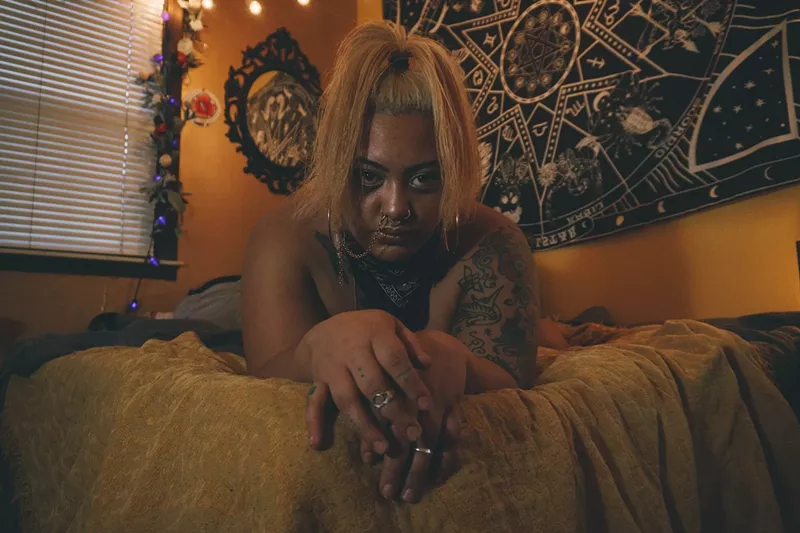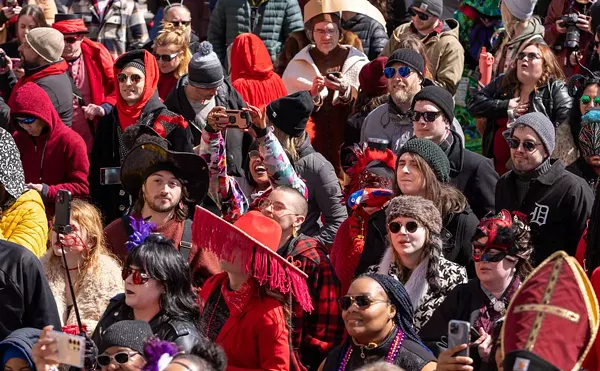Black transgender and genderqueer people have disproportionately high levels of unemployment, homelessness, and extreme poverty. Many are physically or sexually assaulted, and often have had poor experiences with healthcare providers. Black trans and queer people are violently oppressed everywhere, and Detroit is no exception. Black trans women in Detroit are murdered at high rates. In June 2019, a single Detroit shooting took the lives of three Black members of the LGBTQ+ community.
That's why it's vital that QTBIPOC people have communities where they can feel safe and share solidarity with one another. One such community that aims for that is BabexHouse, a solidarity network that describes itself as “a collective of like-minded QTBIPOC artists that came together … for the purpose of raising marginalized voices,” and aims to build a home and build “permanence for Black queer melodic futures” — because “Black queer music generates rhythms of radicalism.”
Metro Times recently spoke with BabexHouse creator and founder Sarah Raymore, an artist who goes by DJ Applejuice. In her Instagram bio, she identifies herself as a “Fat Black-Indigenous Butchy Queer Femme Mage” and a Detroit native.
Raymore first launched BabexHouse in Seattle in 2018 in order for her community to “have a face of our own.”
She says she takes inspiration from women like Marsha P. Johnson and Audre Lorde. “They’re all coming into the picture now,” she says. “But we’ve been doing it for so long, so I’m just trying to carry the torch.” The BabexHouse website features a quote from Lorde’s poem “A Litany for Survival,” originally published in 1978: “So it is better to speak remembering we were never meant to survive.”
Raymore recently launched a BabexHouse chapter in Detroit, where she was born and resided until the age of 8. “Detroit means the root of America. Detroit means the heart of America," she tells Metro Times. "Knowing who I was for the first time in my life was here.”
Raymore first understood she was different from cis-het people when she watched films like The Lion King and Space Jam as a child. “I knew I liked the girls,” Raymore says. “I know I was queer then, but I didn’t realize what that was. I thought I was just a weird little kid.”
Now, Raymore said she is struggling to get by on a QTBIPOC advocate’s salary and says she is living off of unemployment benefits. “I barely have money to survive,” she says. Despite this, she continues her activism through BabexHouse.Musical artists under BabexHouse recently played at several Pride events at the Hotel Saint Regis and performed a Juneteenth showcase at the Tangent Gallery.
“You can’t label who I am, you can’t judge who I am,” Raymore says, referring to those who have biases against her for her identity. “I’ve learned whoever’s aligned with me is gonna love me unconditionally because they accept who I am.”
Raymore requests that people not of the QTBIPOC community recognize their privilege and not center themselves upon entering Black, queer spaces. “People that are white,” she says, “need to recognize that it's a privilege to be witnessing the magic of QTBIPOC spaces.”
When asked about her hopes for the future, Raymore says, “My biggest goal at the end of the day [is] just for [BabexHouse] to be … global.”
BabexHouse can be found on Instagram, Facebook, SoundCloud, Twitter, their official website, and email at [email protected].
Stay connected with Detroit Metro Times. Subscribe to our newsletters, and follow us on Google News, Apple News, Twitter, Facebook, Instagram, or Reddit.







